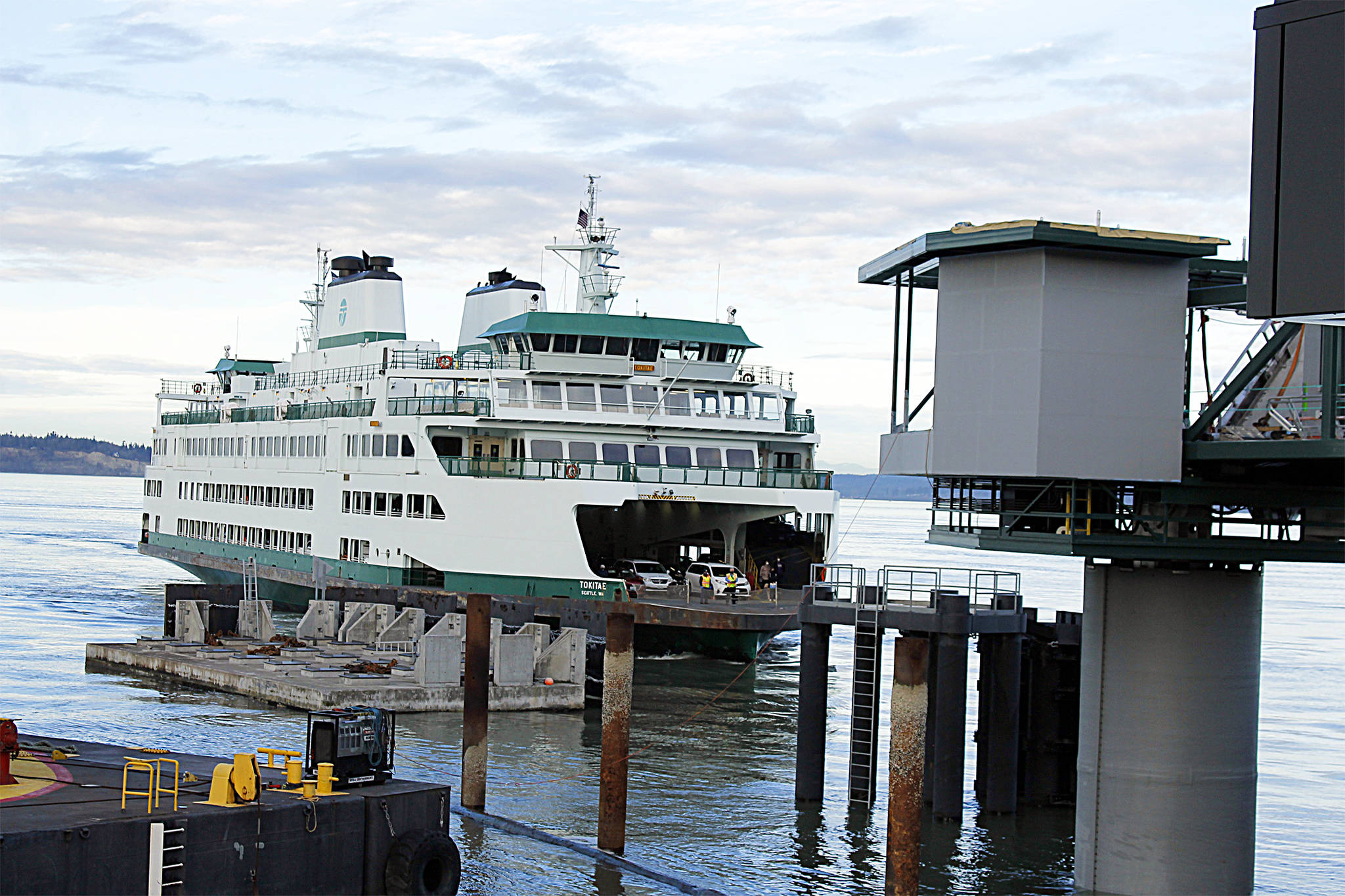The news that ferry ridership hit its lowest level in nearly 50 years might come as a surprise to those waiting in the packed holding lanes on the Mukilteo-Clinton route.
That route was hit by the pandemic plunge of 2020, but not as much as others in the state ferry system.
Even with a 26 percent drop in total riders on the boats that crisscross the water twice an hour, the route connecting Snohomish County to Whidbey Island carried the most customers statewide.
Ian Sterling, Washington State Ferries spokesman, said total state ridership in 2020 was about 14 million, about 10 million less than in 2019. Stay-at-home orders, remote work and decreased tourism because of COVID-19 are the main reasons for the system’s lowest yearly count since 1975.
“Compared to other transit systems, we’re the lucky ones,” Sterling said. “Rail, bus and even airlines have seen a dropoff in customers.”
Ferry rides have now picked up after plummeting.
In recent months, ridership has returned to about 60 percent of pre-pandemic levels.
Total vehicles are near 70 percent of 2019 numbers, while walk-ons are around 20 percent of last year.
“We have recovered significantly,” Sterling said. “We are at 70 percent of where we would normally be.
“We expect to continue to rebound.”
Ferries offer a relatively safe means of travel.
“You can stay in your car the whole time. It’s basically a touchless way across the water,” he said.
It isn’t the ferry ride of the summer of 2019.
No more standing on the very top deck for a hair-blowing breeze or scarfing down popcorn while working a jigsaw puzzle. The galley is closed, tables cleared off and some areas are roped off.
Loudspeakers urge riders not to leave their cars. Restrooms are open, just in case.
The new Mukilteo ferry terminal opened Dec. 29. The depot, Washington’s first new ferry terminal in 40 years, connects with a waterfront promenade. Nearly 250 vehicles fit in the holding lanes. The walk-on passenger boarding ramp is expected to be ready in February.
For the first time since it began operations in 1951, the ferries carried more vehicles (7.6 million) than passengers (6.4 million) last year.
This shift in ridership was fueled by a dramatic decline in walk-on customers on routes that serve downtown Seattle and more people choosing to drive on board because of the pandemic.
“The Seattle-Bainbridge Island route took a huge hit with all the walk-on customers commuting to work in Seattle. They’re all working from home,” Sterling said.
On that route, walk-on passengers were down 74 percent and vehicles decreased 36 percent.
On the Edmonds-Kingston route, total ridership fell 29 percent.
“Mukilteo-Clinton, that route got by unscathed,” Sterling said.
“For the most part it’s continued to operate normally, and that hasn’t been the case for the rest of the system.”
Whidbey Island’s other ferry route was hit much harder.
The state reports that total ridership on the Coupeville-Port Townsend ferry decreased by 37 percent. Vehicles decreased by 30 percent.
The impact was felt by Central Whidbey’s small businesses.
Lynda Eccles, executive director for the Coupeville Chamber of Commerce, said tourism in Central Whidbey largely depends on ferries, with visitors traveling from Canada and the Olympic Peninsula.
The closure of the international border and the decrease in visitors on the ferry from Port Townsend had a significant impact.
The city’s visitor information center saw 8,623 people in 2020, a 46 percent decrease from 18,600 in 2019.
About 10 percent of visitors were from out of the state, and they showed up mostly during the summer months.
The majority of visitors came from Western Washington throughout the year.
Unlike other places on Whidbey, Coupeville has not had any businesses close as a result of COVID-19.
“The one thing I’m seeing is people are really supporting shopping local,” Eccles said.
• Whidbey News Group reporter Kira Erickson contributed to this article.
Correction: A previous version of this story incorrectly stated how much state ferry ridership fell in 2020. It decreased by 10 million in 2020 compared to the previous year. We regret the error.


